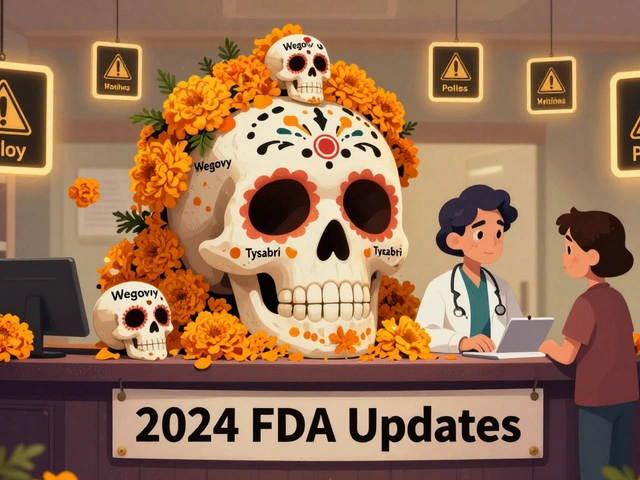Velpatasvir: What It Is, How It Works, and Practical Tips
Velpatasvir is an antiviral drug used with sofosbuvir to treat chronic hepatitis C. The combo targets the virus directly and works across all major HCV genotypes. If your doctor mentions Epclusa, velpatasvir is the partner drug in that pill.
Typical treatment lasts 12 weeks for most people. Your doctor will base exact timing on liver health, prior treatment history, and whether you have cirrhosis. Some patients need ribavirin or a longer course, but that’s decided case by case.
Common side effects are mild: headache, tiredness, and nausea. Serious reactions are rare but can include allergic responses. Before starting, your clinician will check liver tests, HCV RNA, and screen for hepatitis B—treatment can reactivate HBV in some people.
Drug interactions and safety tips
Velpatasvir’s absorption drops if stomach acid is reduced. Avoid taking it at the same time as proton pump inhibitors and be cautious with antacids. Drugs that strongly induce liver enzymes—like rifampin, carbamazepine, phenytoin, and St. John’s wort—can cut effectiveness and should be avoided. Also mention all prescription and over-the-counter meds to your provider.
Another safety note: combining sofosbuvir-containing regimens with amiodarone can cause serious, slow heartbeats. If you take amiodarone, talk about alternative treatments and heart monitoring before therapy.
Practical advice for starting treatment
Take the pill the same time each day with or without food unless your doctor says otherwise. Missing doses reduces the chance of a cure. Keep follow-up lab checks scheduled—your provider will measure viral load during and after treatment to confirm cure (sustained virologic response at 12 weeks after finishing therapy).
If you have kidney disease, pregnancy plans, or other chronic conditions, bring this up early. Some patients need dose adjustments or extra monitoring. Also discuss vaccines for hepatitis A and B if you aren’t immune.
Accessing velpatasvir requires a prescription. Beware of online pharmacies that don’t ask for a prescription or lack clear contact details. If cost is a concern, ask about manufacturer savings programs, patient assistance, or discount cards through your clinic.
If side effects feel severe or you notice jaundice, dark urine, new bruising, or fainting, contact your healthcare team right away. For most people treated properly, velpatasvir plus sofosbuvir cures hepatitis C and prevents long-term liver damage.
Before you start, write down key questions: what are success rates for my genotype and liver condition, what side effects should I expect, which medicines or supplements must I stop, and who do I call if I feel unwell. Bring a current medication list and any supplements to your appointment so the provider can check interactions quickly.
Support matters. Many clinics offer nurse follow-up and phone check-ins during therapy. Local liver or infectious disease clinics can help with complex cases. If you feel anxious about side effects or results, ask about counseling or peer support groups for people who completed hepatitis C treatment. Staying connected improves adherence and makes the process less stressful. Ask your doctor for a clear follow-up plan and numbers.

During my treatment with Velpatasvir, I've learned that maintaining a healthy diet is essential for optimal results. I make sure to eat a balanced diet rich in fruits, vegetables, whole grains, and lean proteins to support my body's recovery. It's crucial to avoid alcohol and high-fat foods, as they can interfere with the medication's effectiveness. I also stay hydrated by drinking plenty of water and avoiding excessive caffeine intake. By following these guidelines, I'm able to maximize the benefits of my Velpatasvir treatment and support my overall health.
Chris Gore May 9, 2023




